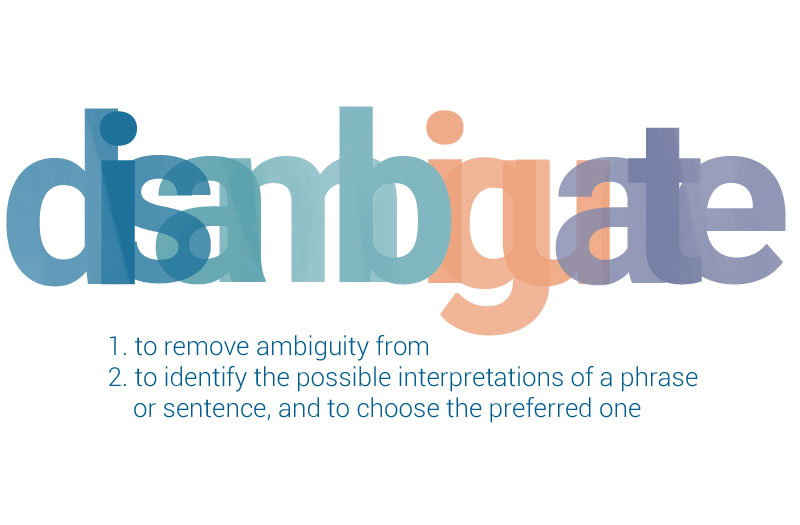 There is no denying that Christmas is a difficult time for many people. The reasons for this vary, but they are often quietly personal. An article I read a little while back highlighted this issue by sharing the story of a woman whose son died in a car accident during the festive season. It contained these lines:
There is no denying that Christmas is a difficult time for many people. The reasons for this vary, but they are often quietly personal. An article I read a little while back highlighted this issue by sharing the story of a woman whose son died in a car accident during the festive season. It contained these lines:
“Christmas has changed for her family. She fears, possibly forever.”
While the meaning here is sorrowfully obvious, it is also imprecise in its current form. Each of these two sentences is complete and correct in itself. The effect is that while their individual meanings could be seen to relate to one another due to proximity, they are not actually connected.
The statement that “Christmas has changed for her family” expresses one thought, as does the second sentence about the woman’s fear. Read on its own, this latter statement does not give any indication of why the woman is afraid. It only proclaims that she experiences fear and that this feeling might endure, “possibly forever”.
By placing each thought in a separate sentence, the writer has isolated the cause of the fear from its source, which relates to the way that Christmas has changed. In so doing, the meaning of these lines becomes ambiguous. To remedy this situation, we need to associate the fear with its reason more clearly. One way to do this is as follows:
“Christmas has changed for her family, she fears. Possibly forever.”
This version maintains the structure of the original but shifts the full stop so that both “Christmas” and “fears” appear in the one sentence. However, it creates a sentence fragment with the words “Possibly forever”. Lacking both a subject and a verb, this phrase is grammatically incomplete. Nevertheless, it could be used in this way for a deliberate stylistic effect.
A more correct form of expression would see the sentences reframed as:
“She fears that Christmas has changed for her family, possibly forever.”
Now the entirety of the meaning is conveyed in a single, if sad, statement.
In selecting these sentences as an example to disambiguate, I am conscious of the need for a degree of delicacy. Part of me wonders whether it is appropriate to use the story of a family’s bereavement for this purpose, but there is another part of me that reads this tragic tale and wants to ensure it is given its full significance through clear and correct expression.
I have said before that editing, for me, is about showing respect. This respect is given first to the writer but I believe it is due to the subject of the writing too. That is why this is a good example to use.
Incidentally, having recently written about embarrassment, I also want to make it plain that I do not cite these examples of ambiguous writing in order to shame or demean anyone. That is why I do not specify where I find these snippets, nor name those who write them. I’m sure we can agree that all of us are at times clumsy in our written expression. Indeed, it is when writing about the things that matter most to us that our words may get especially tangled.
It is never my wish to make anyone feel bad about their writing. Instead, my intention is to show how the subtlest of alterations can make a distinct difference to the way our words and our stories are read.
I hope that is how you see it too.
How did you read the original sentences used in this example? If you encountered them in an article, would they have bothered or stopped you, or would you have understood their implied meaning? How important is precise expression to you, both when you read and when you write?
 I know I’m not the only one. I know it has happened to you too. It happened to one of my clients just the other day. We have been working together for over a year now on a project which is almost ready to be published. As we were discussing the final stages of the work, she said to me:
I know I’m not the only one. I know it has happened to you too. It happened to one of my clients just the other day. We have been working together for over a year now on a project which is almost ready to be published. As we were discussing the final stages of the work, she said to me: It happens every time. Whenever a writer sends me a manuscript, I feel a delightful sense of anticipation. It’s like something potentially wonderful is in front of me and I’m eager to discover what I will make of it. This pleasure, however, is always measured by my need to read the document critically and analytically. I have to
It happens every time. Whenever a writer sends me a manuscript, I feel a delightful sense of anticipation. It’s like something potentially wonderful is in front of me and I’m eager to discover what I will make of it. This pleasure, however, is always measured by my need to read the document critically and analytically. I have to  I confess. It’s true. Like you, I have my word quirks. There are those I use often because I’m fond of them (“nifty”, “tricky”, “expressive”, “poetic”) and many I use rarely because they don’t resonate with my voice.
I confess. It’s true. Like you, I have my word quirks. There are those I use often because I’m fond of them (“nifty”, “tricky”, “expressive”, “poetic”) and many I use rarely because they don’t resonate with my voice.